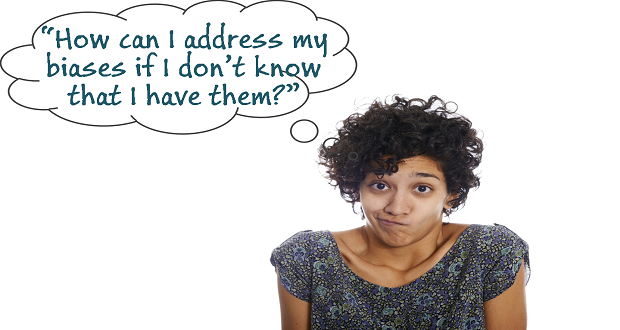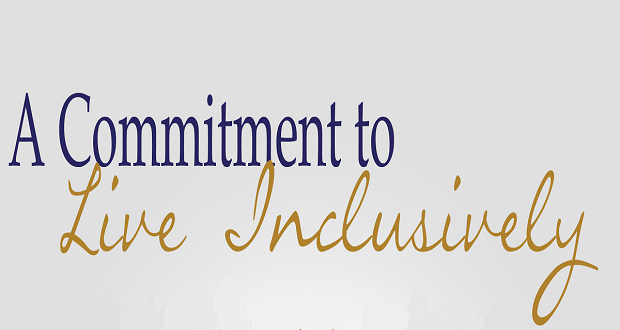
In part 1 of the series, I outlined five conditions that are necessary to begin to manage our individual biases. I would like to close the series with the answer to this question:
[dropshadowbox align=”center” effect=”lifted-both” width=”550px” height=”” background_color=”#ffffff” border_width=”1″ border_color=”#dddddd” ]“How can I address my biases if I don’t know that I have them?”[/dropshadowbox]
By definition, “unconscious” means that we are not aware. Here are five ways to uncover your unconscious biases:
- Assume that you have them. We all do.
- Conduct research on yourself. What are some behaviors that suggest you may have some hidden biases about particular groups.
- Do you hire the same type of people all of the time?
- Is your circle of friends fairly homogenous?
- Do you find racial/ethnic, gender, LGBT differences something that you would rather not talk about or address?
- Do you laugh at jokes about other groups?
- Make a list of groups that are different from you and your group. It is human nature to be more positive about groups we are a part of than those we are not. The Winters Group conducts an exercise where we have participants self-select into three groups: Friendly helper, Logical thinker or Tough battler. After brainstorming adjectives that describe the group they chose, we ask them to come up with adjectives that describe one of the other groups. Invariably, the list of adjectives for their group are more positive than those for the other group. It follows basic “in-group/out-group” theory.
- Do you interact with these groups?
- Do you know much about these other groups?
- What adjectives would you use to describe the other groups on your list?
- Ask a trusted friend or associate how he/she perceives you. It is often hard for our friends, family and associates to give us honest feedback. Let them know that you really do want to know.
- What are some behaviors that they may have noticed that would suggest you have unconscious bias about a particular group?
- Examine your worldview.
- Do you tend to think in absolutes…right and wrong…good and bad or do you think more in relative terms. Something may not be right for you but you can understand how it could be right for others?
- Do you tend to make quick judgments about what you see or are you more reflective until you have additional information?
- When you see behaviors that are different, do you interpret them from your cultural lens or do you describe in neutral terms until you have additional information?
The “I don’t know that I have them” argument is no excuse for not addressing your unconscious biases. It does take work, intention and commitment as I said in part 1. If you want to be a part of fostering an inclusive world, it truly does start with your own work. After all, Inclusion Starts with I.



















Hi Mary-Frances,
I have found your feature on Unpacking Our Biases, Unconscious and Conscious extremely interesting and informative and I would like to use you as a reference in my module on Inclusive Pedagogy if you don’t mind. With full reference acknowledgement of course. I would also like to use the image below in a presentation in a lecture, would this be okay?
https://theinclusionsolution.me/wp-content/uploads/2014/05/Unconscious-Bias-Part-5.png
Mandy